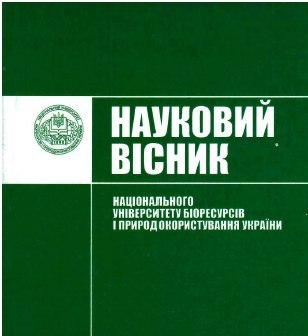Оn the issue of the transfer of the Еnglish lexicon sound in translation
DOI:
https://doi.org/10.31548/philolog0(276).2017.0180%20-%20185Abstract
The article studies English of the voice prosodic characteristics as a separate layer of the sound lexics that represents human voice sounding in the process speech production and forms a separate language world picture fragment. The translation procedures research perspectives of the lexical units semantics are laid down.
The purpose of this article is to reveal the semantic peculiarities of English verbaler prosodic characteristics of the voice that determine the ways of their translation.
Among the areas of study of the methods and techniques of transfer of the vocabulary of sense perception in the translation are the following: using the vocabulary of sense perception as illustrative material for the translation of the provisions and integral description of the language system (Y. Apresyan, Y. Naida, John. Catford, G. Jakobson); contrastive research touch mcroyal (L Erasova, A. Kutsenko, V. Kovalskaya);
psycholinguistic analysis of the vocabulary of sense perception (Influence of A. L. Soboleva). Methodological basis of research were the work of theorists of literary translation (G. Gachechiladze, Zorivchak, V. Komissarova,. Koptelova, Miramas, N. Pelevine, A. Schweitzer).
The prospects of this research lie in the study of the modes of transmission semantics verbaler prosodic characteristics of the voice and translation in English prose, and to identify relationships between divergently the two language systems and transformations in translation.
References
Arutiunova, N. D. (1992). Zhanri obshchenyia [Сommunication Genres] // Chelovecheskyi faktor v yazike. Kommunykatsyia, modalnost, deiksys:Sb. st. – M. – P. 7-23.
Bikova, Y. A. (2005). Kohnytyvno-prahmatycheskye osnovi mezhъiazikovoi mezhkulturnoi kommunykatsyy: tekst, dyskurs, perevod[Cognitive-pragmatic Bases of Interlingual Intercultural Communication: Text,Discourse, Translation]. – M.: Yzd-vo RUDN, 143.
Hlynchevskyi, Э. Y. (2005). Sredstva rechevoho vozdeistvyia
[Means of Speech Influence] // Vestnyk MHU. Seryia 19. Lynhvystyka y mezhkulturnaia kommunykatsyia,
№ 4. – P. 60-75.
Holodov, A. H. (2006). Dehradatsyia sotsyalno prestyzhnikh y dukhovnovozvishennikh poniatyi v sportyvnoi publytsystyke [The Degradation of SociallyPrestigious and Spiritually Lofty Concepts in Sports Journalism] // Problemi
semantyky yazikovikh edynyts v kontekste kulturi (lynhvystycheskyi y lynhvometodycheskyi aspekti): Sb. st. – M.: Эllyps. – P. 682686.
Downloads
Published
Issue
Section
License
Relationship between right holders and users shall be governed by the terms of the license Creative Commons Attribution – non-commercial – Distribution On Same Conditions 4.0 international (CC BY-NC-SA 4.0):https://creativecommons.org/licenses/by-nc-sa/4.0/deed.uk
Authors who publish with this journal agree to the following terms:
- Authors retain copyright and grant the journal right of first publication with the work simultaneously licensed under a Creative Commons Attribution License that allows others to share the work with an acknowledgement of the work's authorship and initial publication in this journal.
- Authors are able to enter into separate, additional contractual arrangements for the non-exclusive distribution of the journal's published version of the work (e.g., post it to an institutional repository or publish it in a book), with an acknowledgement of its initial publication in this journal.
- Authors are permitted and encouraged to post their work online (e.g., in institutional repositories or on their website) prior to and during the submission process, as it can lead to productive exchanges, as well as earlier and greater citation of published work (See The Effect of Open Access).

